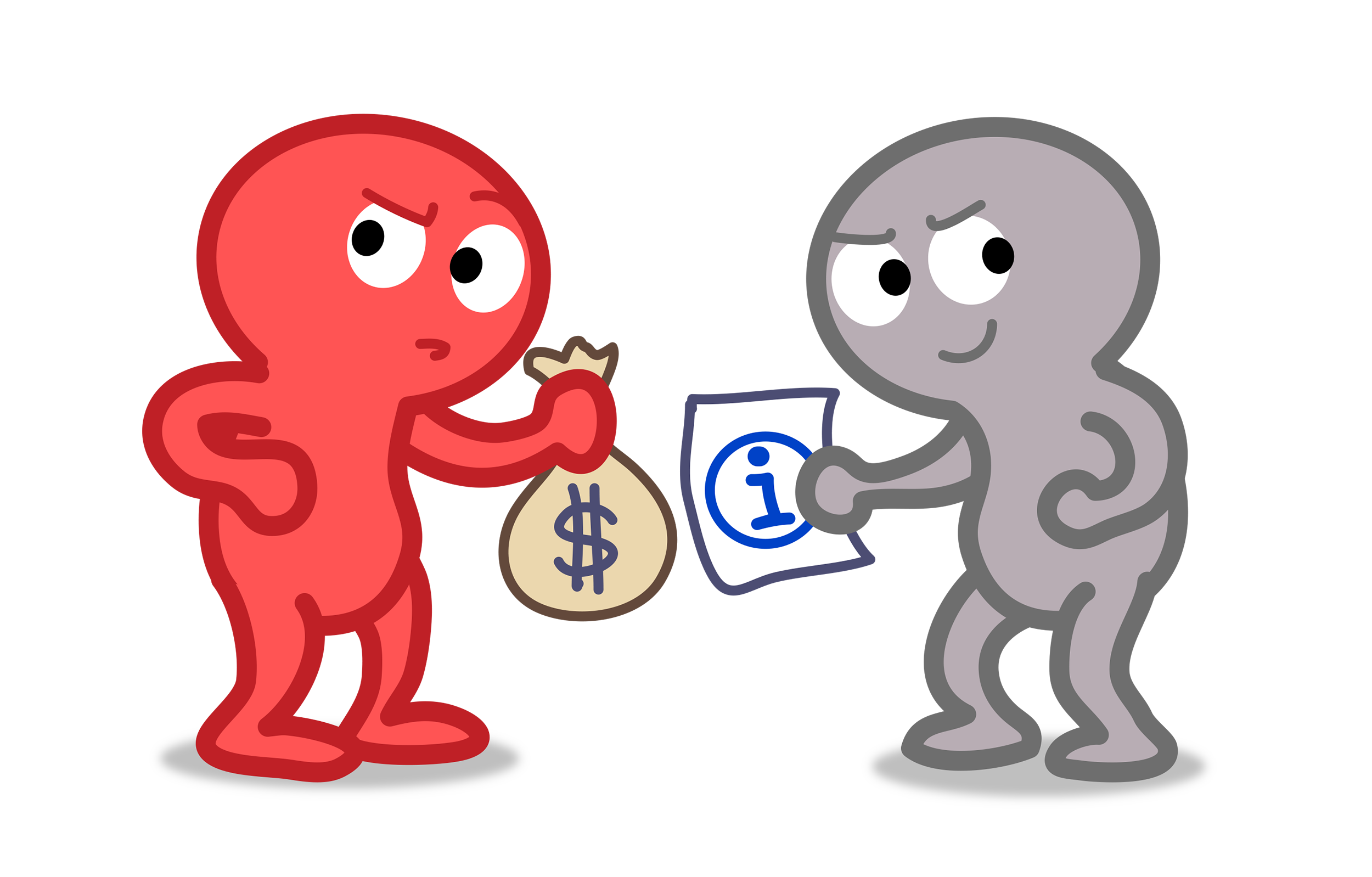
Information about you on the Internet will be used by somebody in their interest — including against you
Information Is Valuable
Every piece of information, public or not, has value to somebody: to other people, to companies and organizations, or to governments. They will use your information however benefits them, which may be contrary to your interests — and possibly even embarrassing or dangerous to you.
Our Advice
Make informed choices; if you’re not sure how your information will be used, don’t share it.
How It Works:
Many free Internet services and other business services (e.g., Twitter, Google, Facebook, credit cards, supermarket reward cards, etc.) make a profit from selling the data they collect about customers/users. This applies both to information you post intentionally and to the hidden parts of your information footprint (see: You’re Leaving Footprints). Even paid apps and services often collect data about you; paying more for something doesn’t guarantee the company isn’t also profiting indirectly by selling your data. More often than not, the data is sold to third-party companies called data brokers that aggregate data from many sources, making it even more valuable.
Laws regulating this data sharing are very limited. There is no national enforcement agency in the U.S. and, with the exception of California, there are no requirements that companies report on what they’ve shared. (See: Privacy Requires Work.) In fact, governments are major users of collected online data; for example, in 2013, it was revealed that the U.S.’s National Security Agency (NSA) was regularly collecting data from social-media companies and cell-phone providers. It is safest to assume that companies, institutions, and governments are saving and exchanging information about you both openly and covertly. Moreover, data that is covertly shared is covertly multiplied (see: Sharing Releases Control); this makes it even more difficult to track down your data.
The ways your information is used may be innocuous or just mildly annoying, for example to tailor which online ads you see, but in the worst-case scenario, digital information can be used against you. Data from cell phones, email accounts, computer hard drives, and other sources can be subpoenaed, and in some circumstances used in court. If information posted by you or about you online is obtained by unfriendly persons, it could be used for bullying, blackmail, threats, or coercion.
What Could Happen? Real-World Stories:
What You Can Do About It:
Use Your Imagination:
- Think before you post! Ask yourself how this information could possibly be used against you, in any way, by anybody. How might it affect you if the information was made known to your family, your employer or business connections, casual acquaintances, insurance providers, telemarketers, your government, foreign governments…?
Get the Facts:
- Check before you sign up for a “free” service: How is that service making money?
Choose What You Use:
- Think through your preferences for how websites, apps, and services share your data, including:
- How much data they collect and record about you (including personal/contact information, posts, and metadata);
- How they use the data;
- Whether and under what circumstances they share the data with third parties;
- …and choose sites, apps, and services whose privacy policies are in line with those preferences. (Read the policies if you can, or use a quick reference guide if you can’t.)
- Only give out as much personal information as you have to. For example, before you enter any information in a form — online or even paper — or allow an app or service to access information about you (including your current location or your contacts), ask yourself what they need it for. If the company or service provider doesn’t need that information to provide the service you want, either:
- Don’t give them the information;
- Give them made-up information;* or
- Choose some other way of getting that service.
- * When making up information, stay within legal bounds; it’s usually not a good idea to make up information on government forms, or when doing business with banks or other highly regulated services.
Communicate About Preferences:
- Check your privacy status with companies. Banks, insurance providers, hospitals, and other companies are often legally bound to let you opt out of at least some types of data sharing.
- Pay attention to mail and email about privacy from companies and institutions; if you don’t respond, they may share your information by default.
How to Better Control Your Privacy — Guides:
Where to Learn More — Related Resources and Educational Tools:
What Do You Think? Discussion Questions:
- Why would it matter who sees your information on the Internet, as long as you’re not doing anything wrong?
- To whom is your information most valuable?
- How much do you value your personal information? Does the way you use computers and the Internet reflect this value?
- How much is your information worth to Google or Facebook? To the FBI?
- What does it mean to “own” or “have the rights to” information?
- Who has the rights to your information? To your email? Your Facebook/Twitter/Instagram posts? Files you have stored in the cloud?
- What is the “cloud”, anyway?
- How do companies or other organizations make money from you, or from using your information?
- What kinds of information about you can companies, services, and social media sites sell to third parties?
- What are the laws protecting you from having your information sold or given away?
- Under what circumstances can police and the government see your private information?
- Who would you least like to have your information?